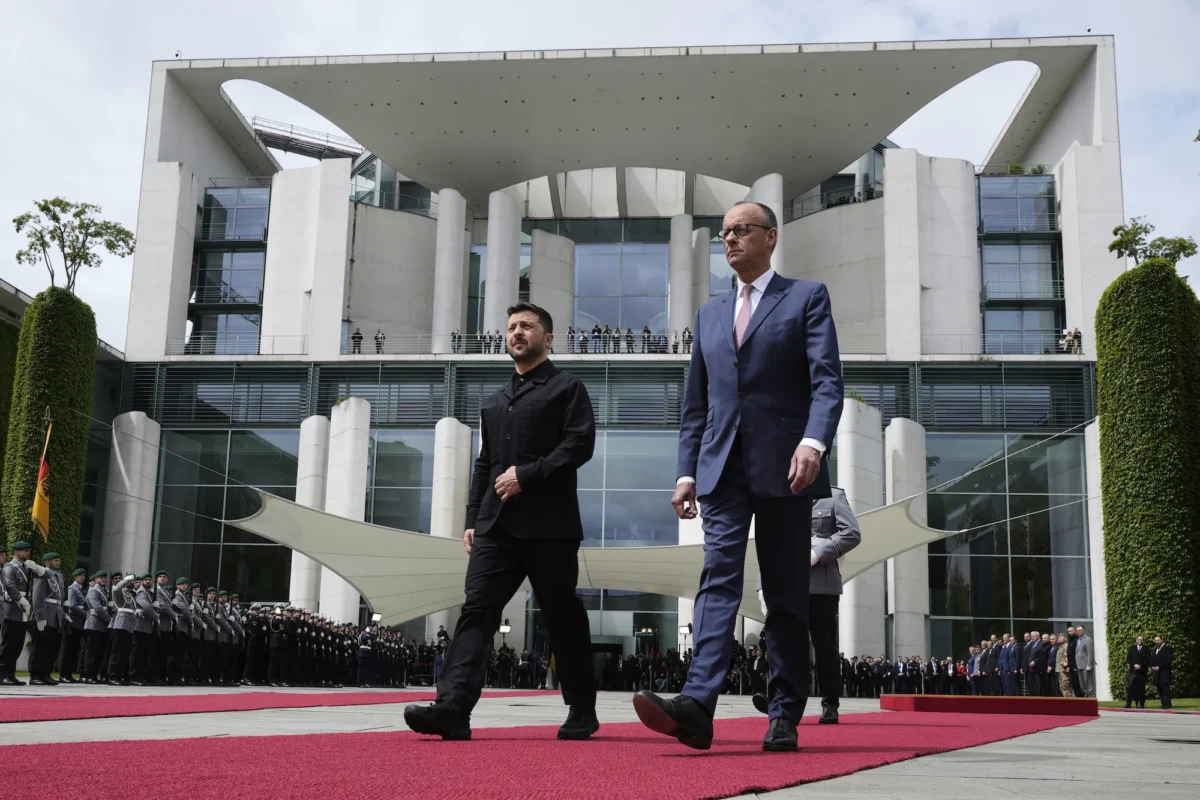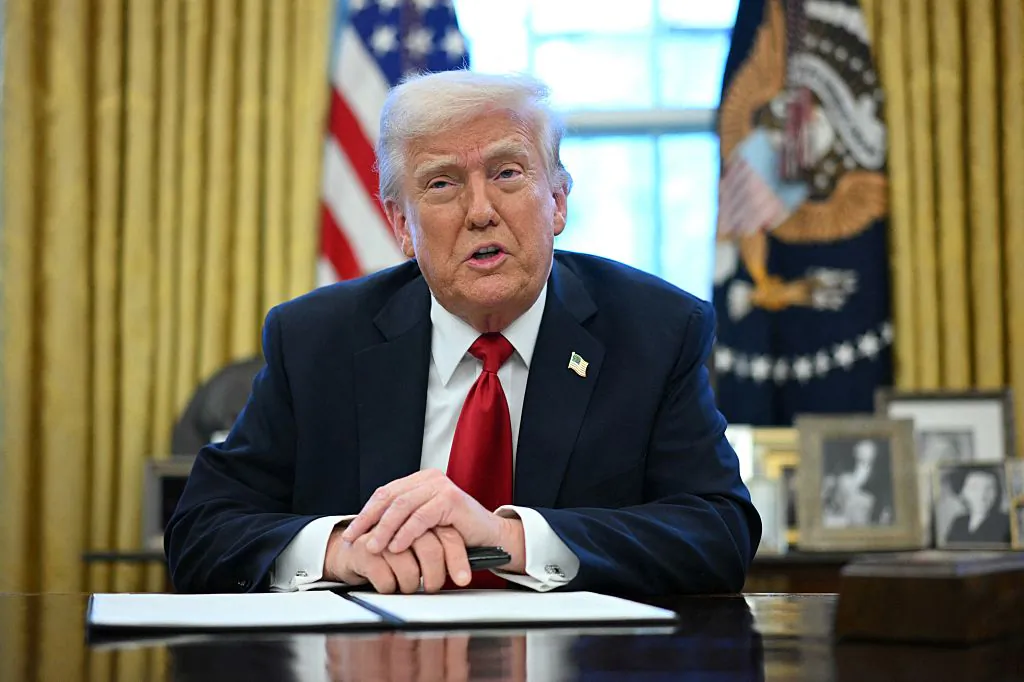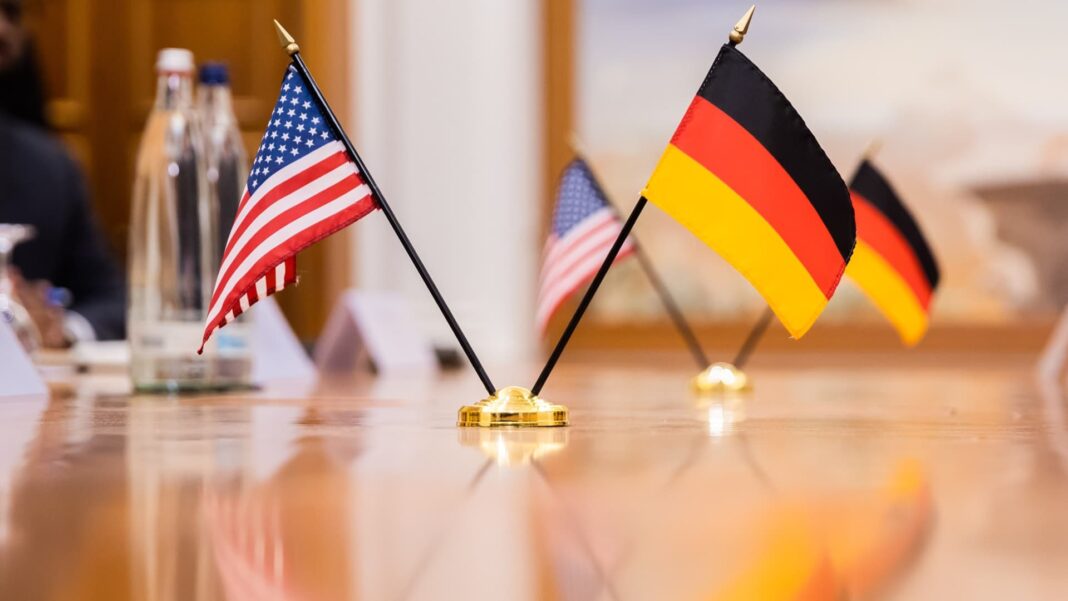WASHINGTON—President Donald Trump will host German Chancellor Friedrich Merz at the White House on June 5 to discuss a wide range of pressing issues, with the Ukraine war, defense spending, and transatlantic trade tensions topping the list.
This will mark the chancellor’s first visit to Washington since his election victory in May.
Merz, leader of Germany’s center-right Christian Democratic Union (CDU), has established a personal rapport with Trump, according to German media.
The meeting will be held ahead of the G7 summit in Canada, where both leaders will convene again in two weeks.
“It’s always important not to talk for too long, but to keep it short and also let him talk,” Merz said, revealing his approach to dealing with the U.S. president.
“You have to adapt your approach and work with him. At the same time, we mustn’t make ourselves smaller than we are,” Merz said. “We are not supplicants.”
Ukraine War
The meeting comes at a critical moment as Russian President Vladimir Putin vowed to respond to Ukraine’s recent drone attack on Russian airfields.
On June 4, Trump said he spoke with Putin for more than an hour about the ongoing conflict.
For months, Trump has been pressing both Russia and Ukraine to end the fighting and negotiate a permanent peace.
Ukraine launched a large-scale drone attack targeting Russian bases deep inside the country over the weekend. The bases, some of which were located as far as Siberia, hosted bombers that are capable of delivering nuclear weapons.
The White House said Trump was not informed about the attack in advance.

Germany’s Chancellor Friedrich Merz, right, welcomes Ukraine’s President Volodymyr Zelenskyy during an official military reception at the chancellery in Berlin, Germany, on May 28, 2025. AP Photo/Markus Schreiber
Trade Tensions
The European Union is currently subject to U.S. tariffs of 10 percent on most goods.
Trump recently announced a 50 percent tariff on the EU that was set to take effect on June 1. However, following a phone call with European Commission President Ursula von der Leyen, he agreed to extend the deadline to July 9.
More concerning for Germany, she noted, are tariffs on specific sectors, such as automobiles, steel, semiconductors, aircraft, and pharmaceuticals. Trump imposed 25 percent tariffs on automobiles and recently raised steel and aluminum levies from 25 percent to 50 percent.
“Merz can use his White House talks as an excuse to simplify Europe’s regulatory climate and to improve German competitiveness,” Naas said. “Rationalizing regulations on sustainability reporting, for example, is a common US and German goal.”
Defense Spending
Trump has long argued that other countries need to pay their fair share for the NATO alliance. Since returning to the White House in January, he has intensified pressure on member states to meet higher defense spending targets.
During a NATO foreign ministers’ summit in Turkey in May, German Foreign Minister Johann Wadephul voiced support for Trump’s position, calling for a substantial increase in defense spending by NATO members.
Wadephul proposed that each country should allocate 5 percent of its gross domestic product (GDP), an increase from the current target of a minimum of 2 percent per year. He also supported the idea that member countries could have a defense spending of 3.5 percent of GDP if an additional 1.5 percent were invested in military-related infrastructure. This idea was floated by NATO Secretary General Mark Rutte recently.
During the White House meeting, Merz is expected to focus on strengthening ties with Trump. He previously invited the U.S. president to visit Kallstadt, the German village where Trump’s grandfather Friedrich Trump was born in 1869.
Merz is likely to renew the invitation during his White House visit.
Jack Phillips contributed to this report.


